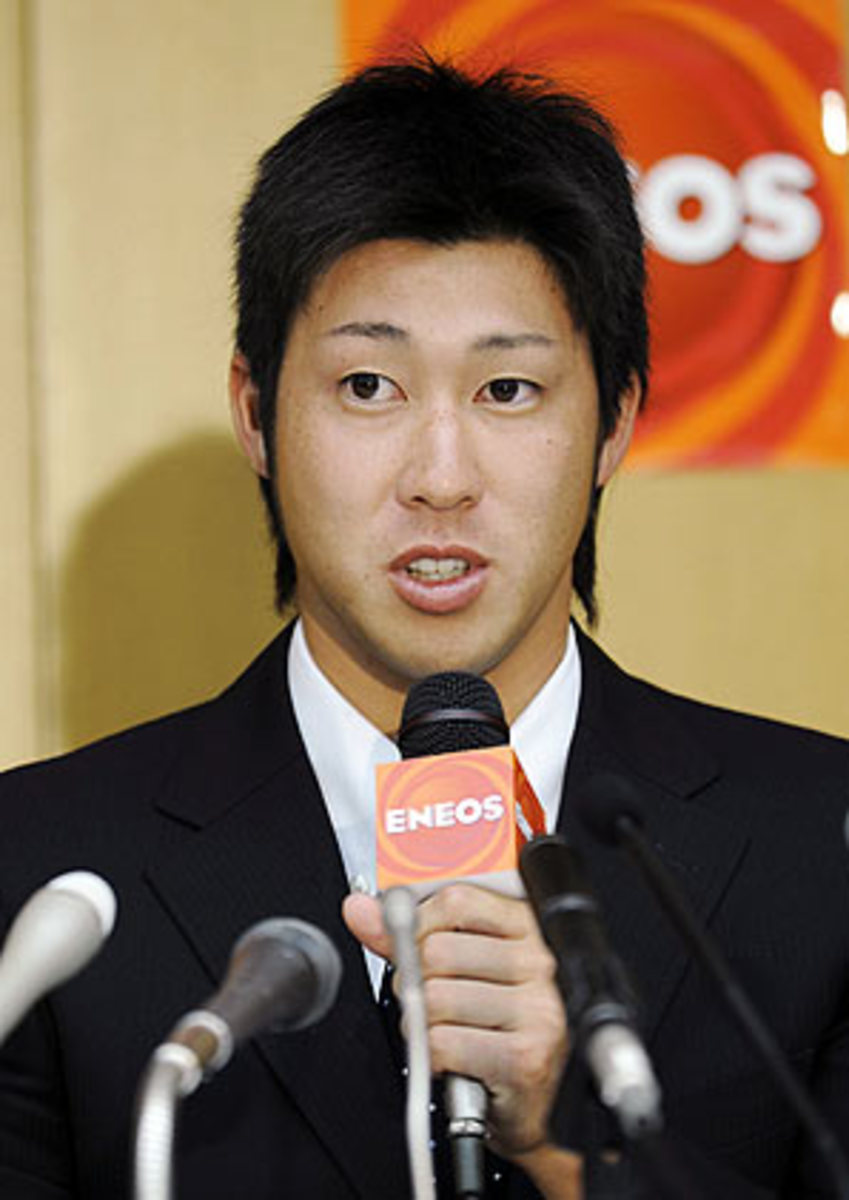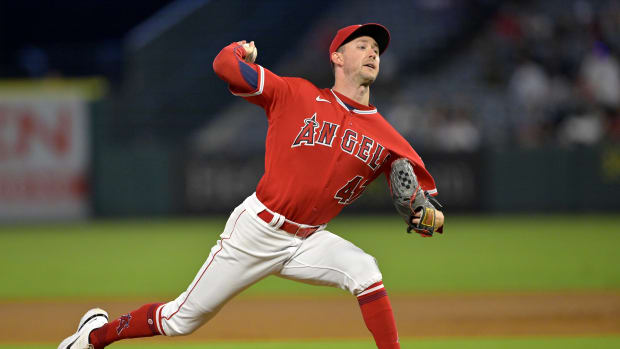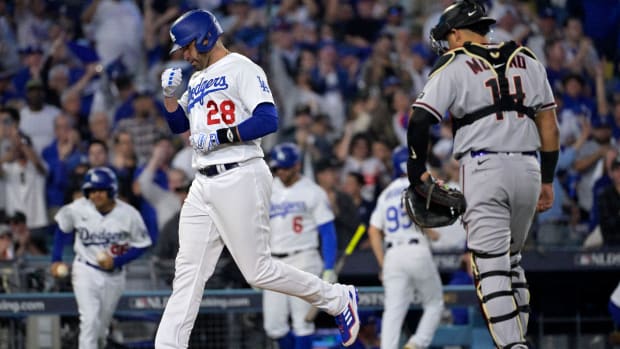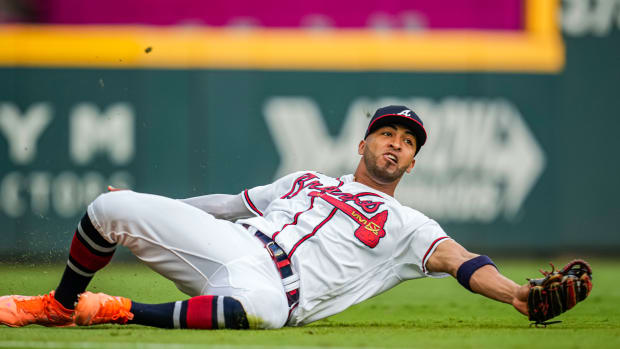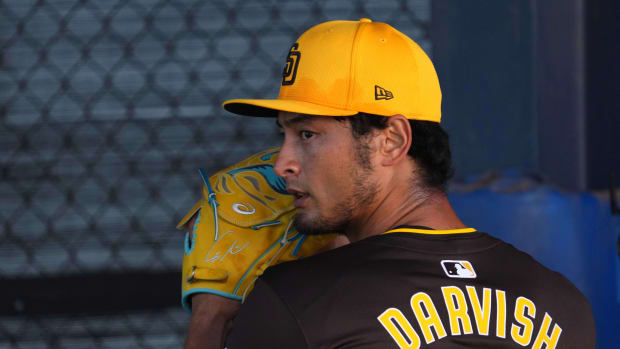The impact of Junichi Tazawa
While his future in the U.S. remains cloudy, so too does figuring out what kind of pitcher Tazawa will be in the States. He currently features a low-90s fastball, a curve with good movement, and the Japanese standard forkball. There is nothing imposing about his build. At a shade under six feet tall and a bento lunch over 175 pounds, the young pitcher is more Edwar Ramirez than CC Sabathia. The highest level of competition he has faced came in the two innings he threw against Cuba in the 2007 Baseball World Cup, retiring all six batters in order. The question, then, is how to judge the greater body of work that he's completed in the shakaijin, or industrial league?
Tazawa can't be counted on for results of any kind at this point. He's completely untested and needs a lot of work before anyone should realistically expect him to pitch in a major league game. If popular opinion in baseball circles places Nippon Professional Baseball at a Quadruple-A level of competition, what can we say about the Japanese industrial leagues? Tazawa has decent stuff but also a thin resume and a cultural divide to bridge, which should temper any fan's expectations. It has taken a once-in-a-generation talent in Matsuzaka to lead a major league rotation. Several other All-Stars have fit middle-of-the-rotation spots, and some have washed out altogether. It's not to say that Tazawa isn't an exciting prospect, but that he must be evaluated in the context of what we know about Japanese success stories as the exception rather than the rule.
In previous years, trying to determine major league equivalencies of Japanese stars has been relatively simple. We've seen a fair sample of work from players worthy of the Japanese Hall of Fame. We've seen a similar body of work from the perennial Japanese All-Star. In fact, we've seen enough of the good, but not great, Japanese ballplayers to make some guesses at how they'd perform in the major leagues. But we have never seen a 22-year-old pitcher of great promise, slated to be a top NPB draft selection with an entire career ahead of him, jump directly to the U.S.
There's a good reason for that: It has been all but forbidden. Not legally -- no one has ever established a hard and fast rule about prohibiting young players from skipping the professional ranks in Japan in favor of a shot at the majors -- as such a restriction would hardly hold water in court. The important cultural point to understand with respect to Japanese baseball is the serious pressure that exists within the rigid amateur ranks to do what your predecessors have done for generations. The Japanese are married to their sense of continuity, and the notion that there is a right way to do everything is important to the identity of the people of Japan.
It may be difficult for American fans to fully grasp that kind of pressure to conform. Baseball is a team sport, to be sure, but U.S. training methods are perceived as lacking structure by the Japanese. Regimented practice is only the most obvious manifestation of the dedication to "the right way" in Japanese baseball. The behind-the-scenes aspects of players' lives, even with respect to those participating at the junior high school levels, is controlled and strictly organized. Breaking from "the right way" is an unthinkable act, one which most certainly would make an individual into a pariah, and so the history of this particular way goes on.
Hideo Nomo shook not only the rigid baseball establishment in Japan but also the nation itself when he left his native country to join the Los Angeles Dodgers in 1995. His defection from NPB was an act of betrayal of "the right way" in a baseball sense, but also in the sense of being a dutiful Japanese. Until he showed his ability to dominate in the major leagues, and until his success was later reinforced by Ichiro Suzuki, Hidek Matsui and Matsuzaka, Nomo was persona non grata in Japan.
Times have changed. The great success of Japanese players in the major leagues has coincided with the internationalization of Japan, and the focus of so many younger Japanese on making their mark in a globalized environment. The new breed of Japanese ballplayers are challenging the world on its own terms, and they're winning. This success gives great pride to the up-and-coming generations of Japanese slowly breaking out of the traditional paths to success. New ideas have infiltrated a notoriously closed society, and new perceptions of "the right way" are subsequently emerging.
This means little to Japanese baseball owners, who are nothing if not married to "the right way." Ownership in Japan is represented solely by the old guard. Seniority is one of the most important social dynamics in the culture, so much so that it's embedded in the formality of the language one must use when engaging an elder or a more established individual. No one can accuse the ownership establishment in Japan of having any fresh ideas about how to manage or market baseball domestically. The popularity of U.S. major league baseball has exploded in Japan at the same time that the popularity of the country's own product has plateaued, to put it optimistically. The old guard will publicly put the blame for that decline on the loss of the most marketable talent to the U.S., but the real reasons are complex, interconnected with other aspects of societal change, and are largely self-inflicted.
Followers of the Japanese sport have seen this moment coming. The day when a top amateur opted out of the traditional path to the professional ranks in Japan for a chance at the major leagues in the U.S. has been on everyone's minds. The name was more uncertain, as was the precise time, but the writing has been on the wall for several years. Some expected that Waseda University ace and Koshien High School Tournament hero, Yuki Saito would be the first to break the mold. He's still two years away from graduation but may find the trail blazed in advance of his decision by Tazawa.
The importance of this situation, more than the player, is the evolution of the "gentleman's agreement" that supposedly exists between NPB and MLB. The Japanese establishment will take this hard and won't react kindly. Business relationships between MLB and NPB will be strained to be sure. No cultural shift comes easily, or without some pain. Other, better players will follow Tazawa to the U.S. majors and the NPB ownership understands that they have zero control over this situation, as the cultural taboos about bucking "the right way" are quickly dissolving while a silent revolution of thought permeates the globalized Japan. Pandora's box was opened when Nomo fled the Far East, but we're only becoming aware of the historical impact of his legacy as we turn our eyes to Tazawa. Perhaps, regardless of his career in the U.S., Tazawa will be mentioned in the same breath as his pitching forefather for his impact on the flow of players from East to West.






























